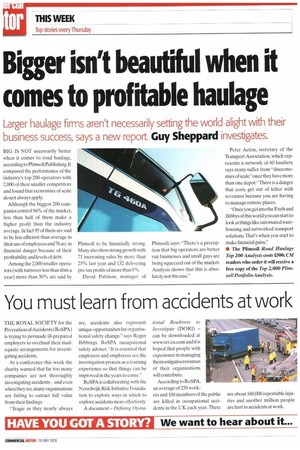You must learn from accidents at work
Page 8

If you've noticed an error in this article please click here to report it so we can fix it.
THE ROYAL SOCIETY for the Prevention of Accidents (RoSPA) is trying to persuade ill-prepared employers to overhaul their inadequate arrangements for investigating accidents.
At a conference this week the charity warned that far too many companies are not thoroughly investigating accidents and even when they are, many organisations are failing to extract full value from their findings.
"Tragic as they nearly always are, accidents also represent unique opportunities for organisational safety change," says Roger Bibbings. ROSPA occupational safety adviser. "It is essential that employers and employees see the investigation process as a learning experience so that things can be improved in the years to come."
RoSPA is collaborating with the Noordwijk Risk initiative Foundation to explore ways in which to explore accidents more effectively.
A document Defining Opera tional Readiness to Investigate (DORI) can be downloaded at www.nri.eu.com and it is hoped that people with experience in managing the investigativeresources of their organisations will contribute.
According to RoSPA, an average of 250 workers and 100 members of the public are killed in occupational accidents in the UK each year. There are about 160,000 reportable injuries and another million people are hurt in accidents at work.














































































































































































































